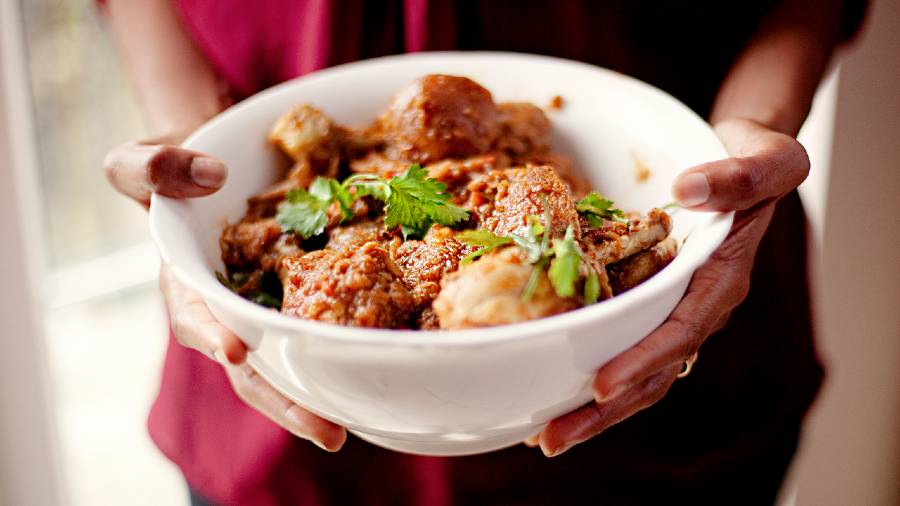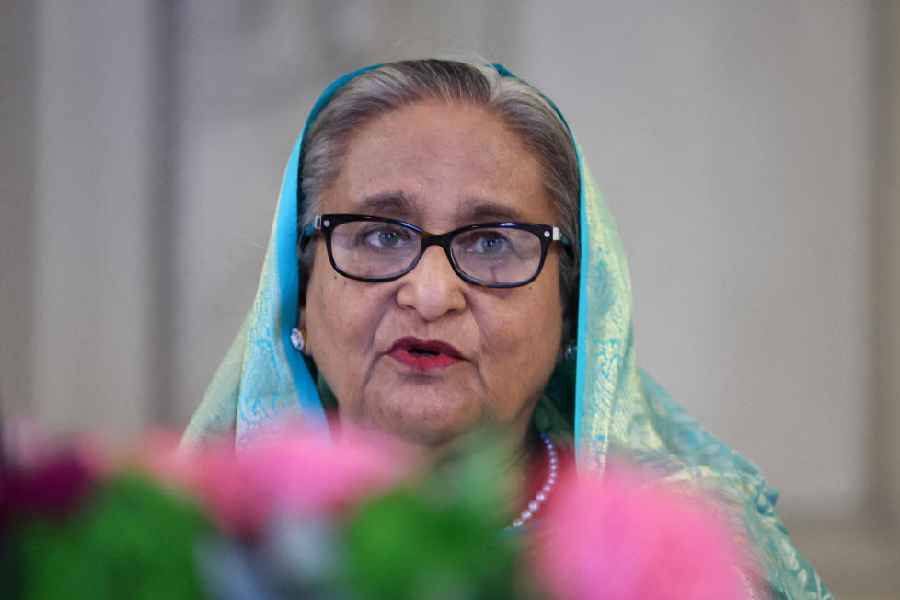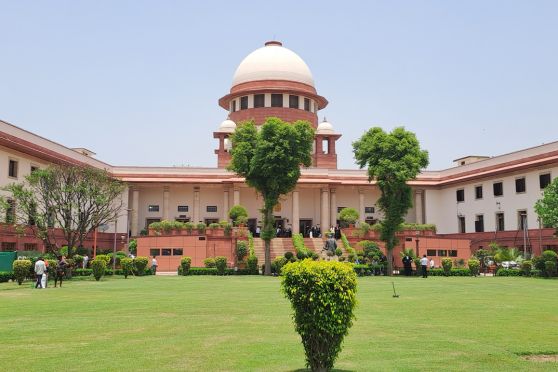When Mrs Parmar tested positive for Covid-19, her biggest worry was what her family would eat. The pandemic was then raging through Howrah, so she had asked all domestic help to stop coming too. Then someone told her about Ambrish Damani.
A fashion designer by training, Damani’s love of and exposure to various kinds of food led him to take up “designing” meals, incorporating dishes from foreign cuisines a couple of years ago. The home chef started taking orders for meals for Covid-19 patients when he heard of whole families, sometimes including domestic staff, being struck by the coronavirus, leaving them with nobody to arrange for food.
Damani believes in mindful cooking, using minimal oil and spices that add medicinal value to dishes such as the anti-inflammation turmeric and the immunity-boosting coriander. “I try to design the food in such a way that it supplies the required nutrition while also being tasty,” he says.
Each meal includes what Damani calls a “tempting” dish — matar paneer, rajma, chana; dal or kadhi; rice, rotis made with oat flour (because it boosts immunity and has lots of fibre), curd or aamras, a cottage cheese-based sweet and a sprouted salad. “The sprouted salad has different ingredients every day so that people get the required nutrition without being bored,” says Damani. He tweaks his meals for those with special dietary needs.
Most of Damani’s customers pay, but he also sends meals to 10-12 families who cannot afford to pay him. These meals are sponsored by friends and acquaintances. At the peak of the pandemic, Damani scrambled to feed 140-150 people daily but now the figure is down to a manageable 35-40.
Shubhra Basu of Paikpara in north Calcutta took up the responsibility of sending lunch to the family of her son’s friend when she heard that they were struggling to cook while being down with Covid-19. More requests poured in and, eventually, she found herself cooking 30-40 meals every day.
“She cooks in our small kitchen and, like most families, we do not have vessels large enough to cook or store food for so many,” says daughter Debasree, who helps her mother with orders and deliveries. Initially, the meals had included rice, dal, a vegetable and fish curry but as orders increased they condensed it to two dishes — a medley of vegetables and a protein dish. “Often we cooked stew. It is light and easy to digest,” says Debasree. Their food has helped people in Paikpara, Belgachia, Lake Town, Kalindi and Nagerbazar. How do they manage finances because they supply the meals for free? “Both my mother and I work, and relatives and friends too are now chipping in,” says Debasree.
When Sumona Maitra and Mayukh Goswami of New Town told friends they would be supplying lunch for free to Covid-19 patients in the neighbourhood, they thought they could help people in their housing society and adjacent ones. “But we got many orders from Action Area 1 and Salt Lake,” says Maitra. “A lot of them were from elderly people, whom I had to teach how to use Swiggy Genie,” says the mother of a 10-year-old boy. Swiggy Genie is the special delivery feature offered by the online platform, Swiggy. It allows you to send food, medicines and any item that you need delivered someplace for a fee.
Maitra did all the cooking herself supported by her domestic help. The meals included rice, dal, a seasonal vegetable, salad and a fish or an egg dish three days a week. The other four days included a protein-rich vegetarian dish that included paneer, soya chunks or dhoka. “We start at 6.30am and all the cooking is done by 12,” says Sumona. At the peak of the pandemic, she sent food to about 20 people but now numbers have fallen and she hopes this is a sign that the pandemic is passing.
Abhisayan Ghara and twins Suprit and Suhit Das started The Home Matters to reintroduce people to the elaborate, old-school dishes of Bengali cuisine that were slowly losing out to the hurried pace of life. But the pandemic saw them cooking comfort food and supplying meals for free or at very reasonable rates. Lunch is typically Bengali fare — rice, a bitter gourd dish either with brinjal or pumpkin or mashed potatoes, dal, salad and a light fish or chicken curry. Sometimes, when the weather dictates, it is khichuri with fritters. Dinner is a little more adventurous but definitely includes a salad. “It is always comfort food,” says Suhit. The meals have to be pre-ordered so the “ingredients are always fresh and there is no quality crunch”, he says. At one time, they were supplying 60-70 meals per day but now it is down to 30-35 meals.
They had started these simple meals to help people. “The pricing has been kept such that we barely recover costs,” says Suhit. But supplying these meals has helped them. “We have learnt so much about logistics and we now have an infrastructure in place. Keeping in mind the demand, sometime in the future we are thinking of going commercial with these meals,” he adds.
Who knew comfort food — that feeling of home — could be delivered too?











